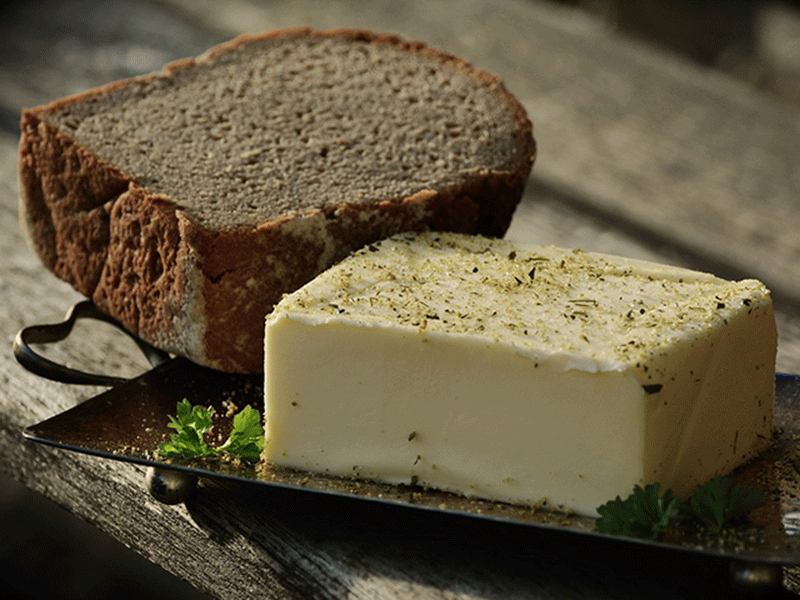From bagged, sliced bread to recycling bags
Updated | By Wendy Knowler
Last week’s Consumerwatch was all about the butter shortage and its hellishly high price, and this week we’re focusing on bread.

Listen to Wendy on the topic below, or read the details under the podcast.
More by accident than design, I spent the day at a bread factory in Cape Town yesterday. The country’s biggest food company - Tiger Brands - just spent R350 million upgrading its Bellville Bakery to make it faster and greener, mainly, and yesterday was its grand opening.
The 47-year-old factory runs 24 hours, seven days a week, and pre-upgrade it produced 6000 loaves per hour, and soon it’s going to be doubling that.
That’s a massive amount of bread; all kinds of bread - from the basic white and brown loaves, which are the bulk sellers, to Best of Both, which looks and tastes like plain white or brown but has added fibre, to low GI, wholewheat and the health range Ultima.
You’d think the brown loaf would be the bestseller, given that it’s VAT free and therefore cheaper than white - that’s to incentivise consumers to choose the healthier bread. But no, white is still king in this country - Albany’s split is around 53% white, to 47% brown.
That said, the company’s healthy bread range is experiencing double digit growth, especially in the Western Cape, home of the country’s most health conscious consumers.
The Bellville Bakery serves only the Western Cape people - we get our Albany bread from the company’s Pietermaritzburg plant.
And get this - whereas the Bellville bakery uses all home-grown wheat, mainly from the Malmesbury area, and the Free State farmers produce just enough wheat for that province and Gauteng, the bread we eat here in KZN is made mainly from imported wheat - it comes from Australia, Argentina and Canada, mainly.
So if the butter shortage intensifies and die-hard butter fans end up having to buy butter imported from Ireland or New Zealand, a simple slice of buttered toast will end up being an international affair.
The shortage of orange refuse bags
From sliced bread, to recycling bags now.
As regular Consumerwatch listeners will know, I’m passionate about recycling as are a growing number of consumers
https://www.ecr.co.za/news/consumerwatch/wendy-dos-and-donts-recycling/
, and eThekwini municipality has been quite a trailblazer in getting consumers to avoid clogging our landfills with things that can be recycled.We got orange bags - free - for paper, cardboard, plastic, juice cartons and polystyrene, and later, very nifty thick clear, draw stringed bags for glass and cans.
But for a very long time I haven’t been getting deliveries of those orange bags, and when I go to collect them from Durban Solid Waste’s offices in Argyle Road, I’m told I can only have one pack “because there’s a backlog”. Month after month it’s the same story.
Six months ago, when I asked Robert Abbu, Durban Solid Waste’s deputy head of strategic & new development, what was going on, he said: “Orange bags are being delivered as they come out of production. The issuing of one pack per household is only a control measure to ensure that the rest of the residents get their supply.”
The company which has the contract to produce the orange bags says the municipality is reneging on its agreement to increase the price paid per bag, and that the 79c per bag they are currently being paid has them supplying at a loss, hence their deliberate short-production.
They’ve asked to be paid R1.07 per bag in order to break-even.
I put this to Abbu this week, who acknowledged that the unit had been “experiencing challenges” with the orange bag supply, which had been “tabled and discussed at the highest level of the City management”.
In the meantime all residents are asked to use the smaller clear bags - designed for glass and cans - for all recyclables.
But not all together - plastic, cardboard and paper to be put into one clear bag and glass and cans in a separate clear bag.
“The supply of the clear recycling bags is a short term intervention as we don’t want to lose the momentum that has been built up,” he said.
DSW is making plans to get a supply of orange bags.
“We have been receiving numerous queries regarding the orange bags short supply, and we continue to assure of customers that we will return to our normal ration and delivery once we have managed to find a permanent solution for the issues surrounding the bags.”
Orange bags are still being delivered, Abbu said. Just not enough of them - and certainly not in my neighbourhood. Only the clear ones.
“The short, or non-supply of the orange is being dealt with at the highest level of the City management and the matter is now being attended to by the City’s legal department,” Abbu said.
Sadly, recycling volumes are down, not only because of the shortage of orange bags but because of what Abbu called “illegal collectors” who help themselves to paper and plastic in bags which residents put on verges, before the collection truck gets there.
And there’s another issue - that thick clear bag with the drawstring, designed to hold glass and cans, costs a lot more to make the orange bags and they aren’t the ideal size for paper, cardboard and plastic either.
Abbu wouldn't be drawn on that. But if the orange bag shortage is due to a dispute over cost, making the clear bag the main recycling bag seems more than a little odd.
Show's Stories
-
A resignation letter of note goes viral on TikTok
A good mix of positivity, gratitude, and leaving on a good note.
Vic Naidoo 1 year, 9 months ago -
Man hires a body double to take his driver's exam
Everyone fails at one thing or another, there's no escaping it.
Vic Naidoo 1 year, 9 months ago